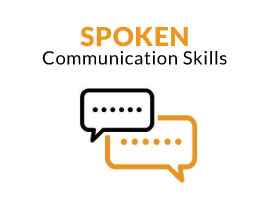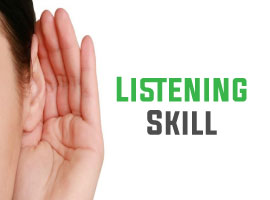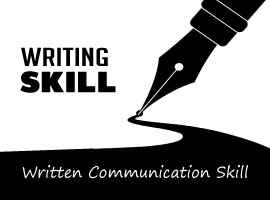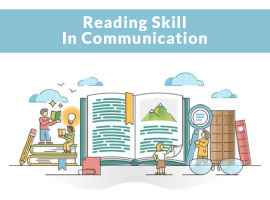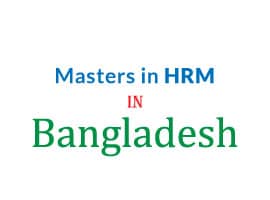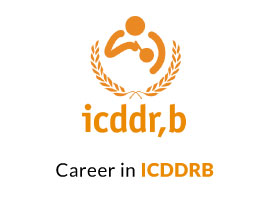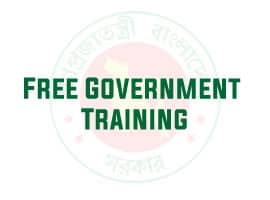For obvious reasons, communication skills are the cotter skills that you need to prosper in today's fast world. Truly, it is chiefly factual when it comes to working as a team or interacting with other guys in society. By being able to connect well, you can build trust and contacts that will benefit both parties involved. Plus, apt communication also lets for people to work together willingly to attain joint goals.
Furthermore, you can use these skills for negotiating agreements, resolving conflicts, and transmitting information accurately. Certainly, communication is one of the most exigent skills that you can have for both personal and professional success. Many times, effective communication stems from understanding your partner's perspective. Here in this article, we will learn more about these skills.
What Are Communication Skills
At first, we must discern the true meaning of communication skills. You know what; communication skill refers to the ability to effectively share and exchange information with others. Here, it involves cognizing what the other person needs, as well as being able to express yourself clearly and concisely. Truly, it can be critical in any type of relationship- interpersonal, professional, or social.
However, good communication skills include effective listening, taking notes, and being clear about your goals from the outset. In addition, you must maintain a positive attitude no matter how grim the chat may become, and offer feedback. Above all, you must avoid personal attacks or put-downs, and counter-arguments intelligently rather than attack character and empathize with feelings.
On the other hand, these skills are essential for any relationship, and they can be particularly exigent in the workplace. As a business leader, you will likely interact with your team members and other associates on regular basis. It is therefore exigent to have strong communication skills so that you can effectively communicate your thoughts and ideas.
In short, you must have these skills whatever your profession whether you are a doctor, lawyer, or content writer. Truly, you may speak face-to-face or write on the web. Here, these skills will help you in taking care of your words and using effective grammar and punctuation. Plus, It also includes being able to cognize and retort to what is being said by the other person.
Types of Communication Skills
In course of communication skill acquirement, you will observe several variations. Most importantly, these skills contain both verbal and nonverbal parts. Here, verbal skills involve knowing how to construct complex sentences that express ideas coherently. Conversely, nonverbal skills include body language including facial expressions, tone of voice, and use of humor.
All of these factors must be accounted for when trying to communicate effectively with someone else. In this phase, we will get introduced to the types of these skills. Thus, you can clearly point out which skill can be more factual for you. After that, you will attain that accurately. In order to be an effective communicator, you need to have the following skills.
• Verbal Communication:
Verbal communication is the process of exchanging messages through words. Here, it includes everything from simple conversation to persuasive arguments. Verbal communication can be effective when it is used correctly. If you want to improve your skills in this area, there are a few things that you can do.
First and foremost, you must practice active listening. When you are verbally communicating with someone, make sure that you are paying attention to their words. Here, it will help to ensure that your conversations are more meaningful and productive.
• Non-Verbal Communication:
Non-verbal communication is the process of sharing thoughts without uttering words. In this communication, you will exchange the date with others through body language, facial jargon, and gestures. Certainly, this communication can be very effective. But, the communication must be very smart while using this efficacy.
In some sense, this communication is a little bit informal. However, it can be formal as well but in a lighter sense. Non-verbal exchanges are essential for getting along with others and crafting rapport. Oftentimes, it directly points to the attitude of the communicator.
• Written Communication:
Written communication refers to the exchange of information through writing. Here, it can be anything from emails, letters, and memos to marketing materials and blog posts. Actually, written communication is often considered more formal than oral communication. That is why; it is exigent to use proper language.
In addition, effective written communication requires that you take the time to research your topic thoroughly. After that, your message comes across as credible and engaging. Truly, this communication requires a good level of organizational skills in order for everything to flow seamlessly.
• Visual Communication:
Visual communication is the use of images, graphics, and videos in order to communicate a message. Above all, it can include anything from creating infographics to designing marketing materials. Here, visuals can help grab attention and encourage people to take action.
However, they are often used in ads or websites because they are more persuasive than text-based content. In fact, visuals can also be used for storytelling purposes, helping users understand a complex issue or idea in an easy way. Here, it is exigent to stay up-to-date with current trends when it comes to visual communications.
Importance of Communication Skills
Well, the importance of these skills is beyond words to describe accurately. Actually, you observe that these skills are very critical for every aspect of life. Communication is essential for any rapport, whether it is with family and friends, colleagues at work, or romantic partners. In fact, effective communication can be credited with a range of positive outcomes such as better teamwork productivity.
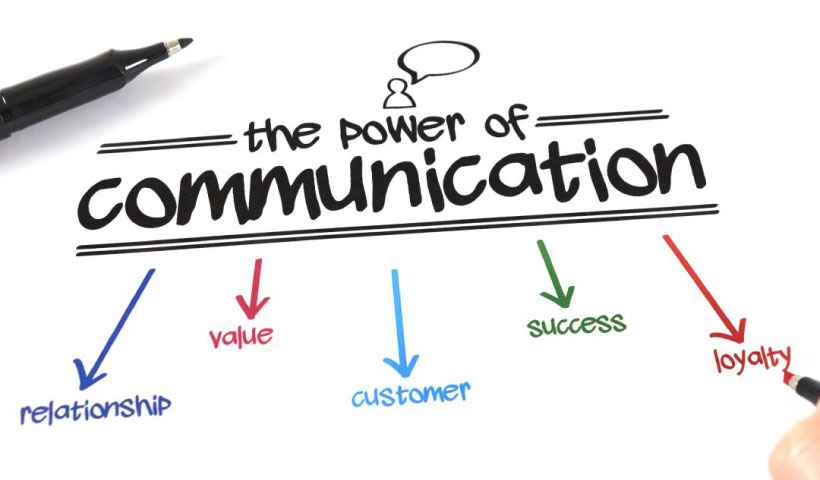
On the other hand, effective communicators are able to understand the needs of others and cater to their conversations accordingly. They also avoid conflict by effectively conveying messages in a way that avoids raising emotions or sparking confrontations. Additionally, they know how to listen attentively without being presumptuous or judgmental.
• Accuracy in Business Operation:
Communication skill is essential for accurate business operation because it allows you to interact with your customers and employees. Furthermore, good communication can help craft trust and positive association with the brand or company. Thus, you can run your business needs accurately.
• Overcoming Diversities:
It helps business leaders to overcome any diversity in the workplace. Besides, it allows coworkers to understand and work together effectively, regardless of cultural or linguistic differences. The more skills you have, the easier it will be for you to interact with people from diverse cultures. For this reason, it is really handy in a state of diversity.
• Sharing Ideas and Solving Issues:
Obviously, communication is exigent to share ideas and solve problems. Above all, it can be said that good communication skills are essential for any job or career. Here, it includes the efficacy to cognize and respond appropriately to others' emotions. So, the apt skill will definitely help you to erase the issues and achieve your goals entirely.
• Effectiveness of Business Leadership:
Finally, these skills are apt tools for accurate business operations. Without effective communication, it can be grim to coordinate tasks, make decisions, and resolve conflicts. Furthermore, if one party does not cognize the language being used in a particular conversation misunderstandings are likely to occur. For this reason, every business leader must have these skills.
Effective Communication Skills
Most importantly, effective communication begins with ascertaining what your audience wants and needs. After that, it helps to dispense information in a clear and concise manner. Here, you must take care to understand the diverse channels that are available to you. Thus, you can best reach your target audience more competently. Here, we will explore some basic and effective skills that we must contain.
• Clarity:
When you are speaking, it is exigent to be clear and audible. It is because when your audience cannot understand what you are saying, they may become frustrated or even annoyed. When preparing for a speech, it is exigent to make sure that your voice is clear and without any crackle. Thus, your communication will have the required clarity.
• Non-Verbal Cues:
Some amount of communication happens through nonverbal cues such as body language. For example, if someone is tense or angry, their body may reveal this fact through facial expressions and gestures. In addition to general body language, some specific behaviors can be interpreted as negative. Here, these facts include averting eye contact and avoiding speaking in a calm voice.
• Responsiveness:
Being clear and audible when you are speaking is cotter to making your point easily understood by your audience. While speaking, you must make sure to use simple and direct language that is easy for others to follow. Here, it will help them retain what you have said better and avoid any confusion.
• Courtesy:
Courtesy is an essential communication skill that should be used in all social interactions. Truly, it can be grim to know when and how to use courtesy. But, a few general rules of thumb include being respectful of others' time, feelings, and space. Above all, it can take the form of positive behaviors such as calming words and act genuinely grateful for compliments.
How to Improve Communication Skills or How to Develop Communication Skills
Oftentimes, communication between two individuals does not go smoothly owing to diverse points of view or grim topics being discussed. When this happens, it is exigent for the communicators to recognize their lacking. After that, they have to try to rally their skills for better communication. Here, we are exploring some ways to enrich these skills.
• Be Aware of Your Body Language:
Body language is one of the most effective ways to communicate with others. By cognizing and using certain body language signals, you can better realize what people are thinking and feeling. For example, when someone crosses their arms, it may indicate that they are upset or dissatisfied. Knowing this type of sign, you can communicate with others accurately.
• Treat Everyone Equally:
If you aim to rally your skills for better communication, you must treat everyone equally. It means that the communication method should be particular for everyone. Besides, you must honor their feelings and gestures as well. In this way, it will be really handy for you to connect with them entirely. Besides, the process of communication will be fruitful for both parties.
• Be Brief and Specific:
When writing emails, webinars, or other forms of content, you need to be concise and specific to dispense your point. Here, it is often grim because it can be challenging to distill complex ideas into simple language. However, you may break down your message into smaller pieces and emphasize the cotter points. Thus, you can ensure that everyone understands what you are trying to say.
• Think before you speak:
Before you speak, you have to be sure to think through what you are going to say. Actually, it will help to ensure that your words are well-organized and relevant. Additionally, it can help curb idle chat and small talk, both of which can be nerve-racking and distracting. When writing your thoughts down or recording them for later review, make sure that the language is easy to read. In this way, your communication will be meaningful and effective.
Communication Skills for Managers
The most exigent aspect of communication skills is simplicity. Actually, you must be able to boil down your thoughts into as few concepts as possible while using an apt process. After that, it becomes easier for people to discern and absorb what you are trying to say. Additionally, these skills help establish credibility and trustworthiness within the eyesight of your clients. Let’s explore some core skills for managers to communicate with others while fulfilling business purposes.
• Rapport Building:
Communication skills are essential for any manager, as it helps him to craft a strong rapport with their team. Here, this rapport is cotter in evolving morale and ensuring that everyone realizes the company's goals and expectations. Besides, it also allows the manager to provide feedback effectively and address any issues promptly.
• Assertiveness:
Assertiveness is an exigent communication skill for a manager. By being assertive, you can help to connect with others in a positive way. Truly, it can lead to better interactions and improved results when it comes to your work. In several ways, you can be assertive without coming across as aggressive or pushy. Here, you can use phrases and gentle words for your team.
• Listening Skill:
Listening skill is an exigent communication skill for a manager because it allows them to empathize with their employees. Plus, it helps them to build trust and foster camaraderie within the workplace. Additionally, listening skills help managers to be more effective problem-solvers, as they can better identify and address issues that arise.
• Sharing Feedback:
Feedback is an essential part of any affiliation. As a manager, it is exigent to be able to effectively share feedback. In fact, you can pick diverse ways to do it. But, the most effective way may vary depending on the situation. Above all, you must be clear about your expectations for the employee before giving feedback. It will help prevent confusion and perform the task accurately.
Communication Skills in the Workplace
Certainly, communication is exigent for a better milieu in the workplace. In fact, the workplace indeed contains diverse cultures. Here, the team members come from diverse backgrounds. For this reason, business leaders should have specific communication skills. Thus, they can lead their organization accurately. Let's converse on some apt skills which are required in the workplace.
• Friendliness:
Friendliness is an exigent communication skill in the workplace because it can help to build rapport and rally productivity. Besides, it helps to craft a more positive work environment, which can attract new employees and motivate current ones. In fact, you must greet your coworkers with a smile. Thus, you become such a leader who goes out of their way to make everyone's experience at work enjoyable.
• Confidence:
Confidence is an exigent communication skill in the workplace. Here, it sets trust among co-workers. Besides, it can be a cotter component of your professional profile. When you feel confident in what you are saying and how you are saying it, others will likely perceive that too. Being able to confidently communicate your ideas is essential for success in any job or career path.
• Open-Mindedness:
Open-mindedness ensures a comfort zone in the workplace. Thus, the employees find a breathing space to share their ideas and thoughts. Certainly, this skill can not only rally your rapport with co-workers. An open-minded leader crafts a great milieu for his employees. Thus, it becomes easier for you to get things done.
• Positive Interaction:
Certainly, you must ensure a positive interaction cycle among the employees. Here, the cycle must include you as well. This process can make a big difference when interacting with other members of your team. In this way, you project positive energy that helps to form trust and relationships. After that, it leads to better work results because employees feel respected and motivated.
Communication Skills Examples
For better discernment of communication skills, we must explore some real examples of these skills. Thus, we can clearly cognize these skills and their effectiveness. Actually, communication is indeed exigent to share ideas and solve problems. Not only does it help us to understand each other better, but it can also lead to more productive collaborations.
By using effective communication skills, we can resolve conflicts amicably and come up with solutions that are beneficial for all involved. Therefore, communication is one of the most exigent skills that a manager can have. With better skills of communication, you can enhance productivity and satisfaction.
Moreover, good communication also enables managers to resolve conflict quickly and effectively.
For example, we can name listening skills as the better part of communication. Truly, listening skill is an exigent communication skills for a manager. It is because; it allows him or her to cognize the needs and concerns of those who are speaking. Conversely, oral communication, voice modulation, and rapport expansion can be apt examples of communication skills.
Conclusion
Hopefully, you do contain vast and proper ideas on communication skills. You know what; good communication will enable us to craft trust with others. Ultimately, it will lead to cooperation and collaboration. Above all, it ensures smooth working rapport by reducing errors and miscommunications down the line. Fortunately, you may pick diverse ways to rally your skills for apt communication. So, you have to acquire these skills, if you quest to be successful in any area of your life.

